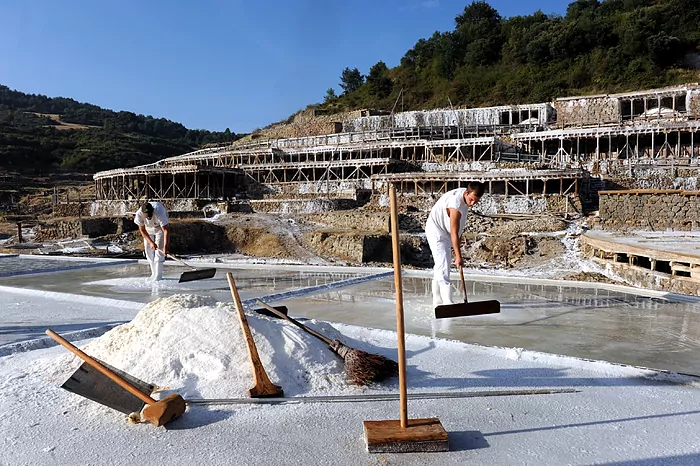The industrialization and globalization of the food sector have led us to travel the world and eat the same food with exactly the same flavor in every country we visit, while indigenous and small-production species are relegated to second and third places, ultimately facing the risk of extinction. A striking example is the case of Añana salt, from a small Basque town.
In the 1960s, artisanal production was gradually abandoned as families left the village and the valley went through a period of crisis. By 1995, barely 500 of the terraces were in use.
The Recovery of the Basque Salt
In the heart of arid plains, the Añaña Salt Lake, once desolate, now thrives anew. Decades of neglect and pollution had left the Añaña Salt Lake barren, its ecosystem on the brink. But a coalition of environmentalists, scientists, and locals united to reclaim its splendor.
With strict regulations and innovative water management, pollution was curbed, and the lake’s waters began to clear. Native flora and fauna returned, and communities became stewards of its conservation.
Nowadays, the Añana Salt Flats in Araba province are amazing. There are 5,000 terraces on 120 hectares of land, built over many years to collect salt. It’s a unique sight to see. With a history of over 6,500 years, its prized salt is entirely pure, originating from an ancient sea that existed over 200 million years ago.
Salt types
Thanks to an ambitious recovery project, coordinated by the Valle Salado de Añana Foundation in collaboration with public institutions, three highly regarded products are now crafted in the Añana Salt Flats by some of our top chefs:
- Flor de sal (Irregular crispy flakes of pure salt, naturally obtained).
- Mineral salt (Crystals of pure salt that gradually enlarge and unite thanks to the sun and wind).
- Salt skewers (Thin stalactites that spontaneously form where brine drips from the channels).
Basque products to experience first-hand
This is one of the fascinating stories behind each of the most recognized Basque food products. At Basqvium, we understand the need to champion our extensive cultural gastronomic heritage by promoting the consumption of these marvelous ingredients. This commitment is evident in the various gastronomic projects we have undertaken at both national and international levels. Learn more about them.

